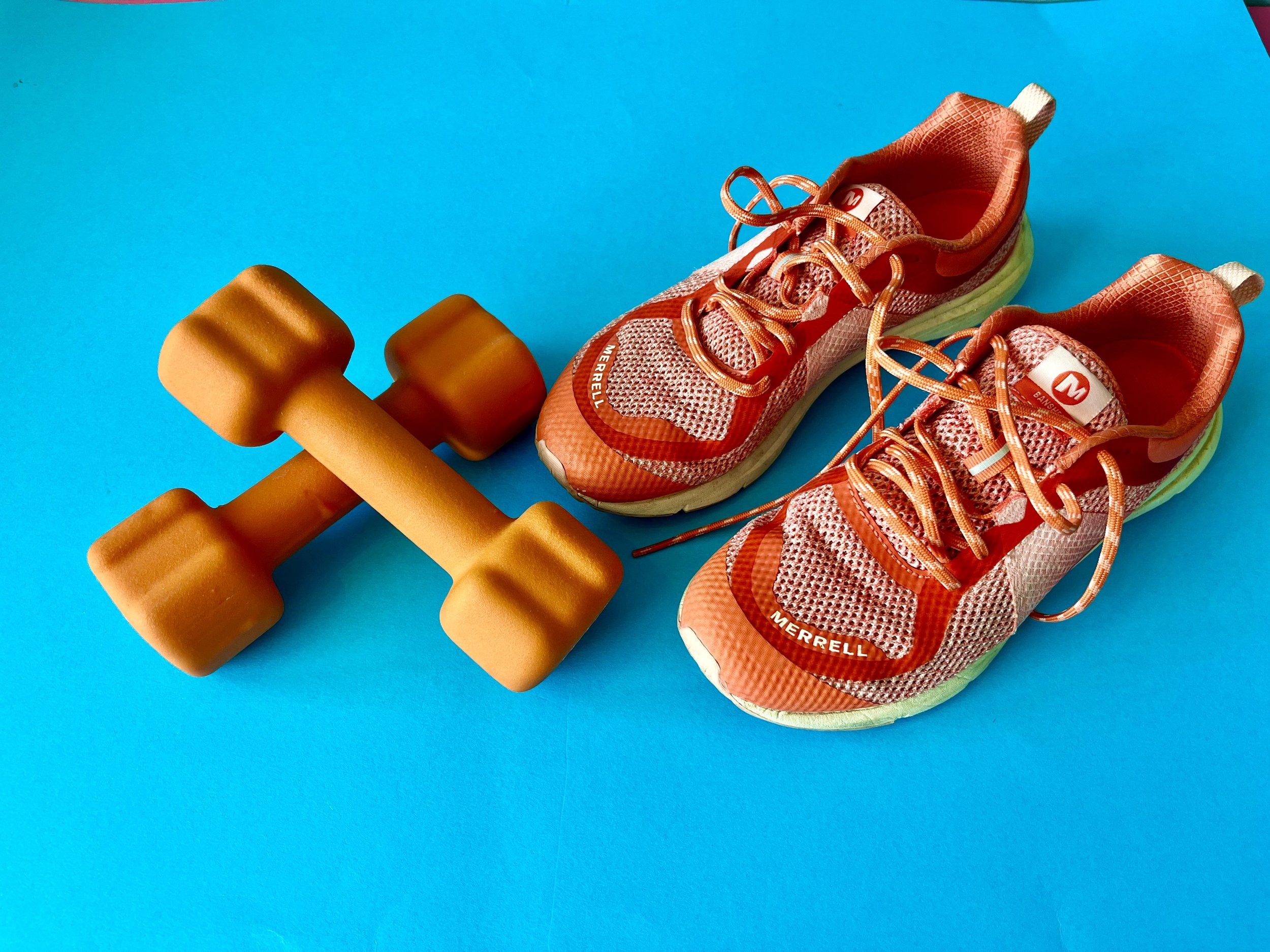5 tips to help handle menopause depression
Why regular exercise can help lift menopause hormonal depression
Regular exercise releases feel-good endorphins and lowers levels of harmful chemicals linked to depression. Getting more active can be particularly useful for people with mild to moderate depression.
The Catch 22 of depression is that even though you know it helps, you can’t summon up the energy to exercise. Start gently. Blow the cobwebs away by gardening, walking the dog or hiking with friends. Walking helps with breathing which can have a calming effect and make a very real difference on your ability to cope with the symptoms of depression.
An ITN Tonight programme broadcast in February 2017 delving into the benefits of exercise, acknowledged that sticking with any form of exercise can be difficult but if we do something for 100 days, it becomes a natural part of our daily routine. You may have more success if you exercise as part of a group so people rely on you to turn up and will notice when you don’t! Play tennis, netball, aerobics, it’s more fun if you buddy-up, see our video exercising in the park it’ll bring a smile to your face at our expense!
An Australian study found that 150 minutes a week of vigorous to moderate physical activity was associated with better physical function, better cognitive function, higher quality of life and fewer depressive symptoms, reason enough to get moving.
If you need more support about exercise talk to your GP. Lots of UK surgeries offer exercise on prescription for conditions like depression.
Build muscle to improve depression in menopause
In 2018 researchers examined 33 clinical trials – involving over 1,800 people – they found those with mild-to-moderate depression who worked with weights at least twice a week saw ‘significant’ improvements in mood. This was intimated as being comparable to taking anti-depressants or having therapy but without the associated cost or side-effects. We know that aerobic exercise and brisk walking can help counter depression, but how often are we told about strength training to lift our mood?
Concerned that strength training will bulk you up? Worried that you will cause damage to yourself by strength training? Don’t worry, we have menopause trained strength and conditioning coaches with our sister business Menopause Movement. If you are looking to build your strength and stamina in menopause, then check our Menopause Movement Directory for a Menopause Coach near you.
Switch off and ask for help
Mid-life can be chaotic: health issues, work problems, relationship breakdown, empty-nesting, caring for elderly parents or just realising that we’re ageing. Stress levels rise, which can worsen the symptoms of depression. So, what can we do? Go easy on ourselves, lower our expectations, and look for support from others. Grab some rest, socialise, laugh, meditate, practice mindfulness or take up yoga. A 2017 study looking at the benefits of hatha yoga found that the positive impact of yoga builds up over time rather than being immediate. If you don't already do yoga, start! The more yoga you do, the more it may help with your depression. You don’t need to join a group, watch our video for yoga relaxation and breathing exercises.
Not getting your z’s?
As oestrogen levels fall, the quality and quantity of our precious, energy-renewing sleep may suffer. Incredibly, 40% to 60% of women going through menopause experience sleeping difficulties. No surprise then that a 2004 American study found that menopausal women suffering from insomnia are more likely to report depression and other mood disorders. See our symptoms piece on Sleepless Nights and Insomnia for more help.
Why water works!
Dehydration may be linked to depression. Brain tissue is 85% water. Energy generation in the brain decreases and slows down when you are dehydrated. And if you’re having hot flushes and/or night sweats you need to drink plenty of water to replace lost fluids anyway.

